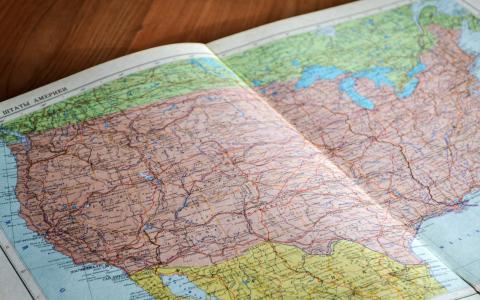
(Yahoo!Finance) - Silicon Valley has long been the epicenter of both tech startups and the venture capital firms that fund them.
Increasingly, however, other "rising cities" across the United States are beginning to grow their own innovation hubs, according to a new report from Pitchbook and Revolution.
"We're starting to see — and it was building over the last few years but, I think, accelerated because of the pandemic — a dispersion of capital, and it's not just a few other cities," AOL co-Founder and Revolution CEO Steve Case said on Yahoo Finance Live (video above). "It's really dozens of cities."
According to Case, the innovation economy has been "dominated" by Silicon Valley, the greater New York City area, and Boston for the past decade, with those three regions accounting for 75% of venture capital during that time.
This has changed over the past year, though.
In 2021, more than $13 billion of Silicon Valley venture capital dollars flowed to regions outside of the Bay Area, New York, and Boston. That's the first time in a decade that less than 30% of venture capital has gone to Silicon Valley startups. As recently as 2017, that figure was above 50%.
The report's authors found that the share of seed- and early-stage venture capital dollars going to startups in the Bay Area and the other two major tech hotspots has been declining over the past decade.
Silicon Valley's share of seed- and early-stage US VC dollars, as of Sept. 1, 2021. (Source: Pitchbook, Revolution)
The number of VC firms dispersed across the country has also grown tremendously.
The most striking finding from this report, Case said, was that in the last decade, "1,400 new regional venture-capital firms have been launched that are providing some of that initial capital in some of these cities. And as some of those initial companies get launched and start scaling, they'll obviously access more capital, including from coastal investors."
The rising startup cities in America
Cities all across the country are contributing to the new innovation economy.
"It's a broad-based effort, and it's beyond the usual suspects that people talk about like Seattle and Austin," Case said. "We're seeing a lot of momentum in Chicago, in Los Angeles, in Raleigh-Durham, in Dallas, in Phoenix, in Columbus, here in Washington, D.C. So I think over the next decade you'll see dozens of cities rise up, not just a few."
The report highlighted 12 growing startup communities, in particular, that are seeing an upward trajectory: Dallas, Denver, Kansas City, Minneapolis, Nashville, Philadelphia, Phoenix, Raleigh-Durham, Salt Lake City, St. Louis, Tampa Bay, and Washington, D.C.
The proliferation of remote work, a trend that the pandemic has amplified, is one reason why these up-and-coming hives of startup activity are more geographically scattered, Case explained.
"Generally in these cities, there has been a tent-pole company that's been successful and created spin-off capital and some other people doing other kinds of things," Case said. "Often, the business community is engaged to support the startups, not just the big companies helping themselves but the big companies partnering with, mentoring sometimes, investing in the smaller companies."
In areas such as Salt Lake City, for instance, established successful companies and former startups like Qualtrics attract talent to the area. Then over time, some of those employees are likely to try their own hand at entrepreneurship and strike out on their own, fueling the city's momentum.
"Our expectation over the next decade is we really will see a dispersion of capital, in some part driven by this dispersion of talent," Case said. "And while Silicon Valley will still be the leader of the pack for sure, and New York and Boston will still be very, very strong, we'll have a more dispersed innovation economy, more jobs being created in different parts of the country, more economic growth in different parts of the country, and investors who recognize this is a trend."
Bay Area seed- and early-stage US VC dollars are increasingly being invested outside of Silicon Valley, New York, and Boston. (Source: Pitchbook, Revolution)
There are other key traits that rising cities share, Case explained. Strong universities tend to abound in innovation hubs. Government support helps too.
For instance, the Raleigh-Durham area benefits from a triad of three major universities — Duke University, the University of North Carolina, and North Carolina State University — which the report calls "founder factories" for new ideas and entrepreneurs.
The report also pointed to Dallas's Task Force on Innovation and Entrepreneurship, a program that the city's mayor Eric Johnson pioneered to attract new startups to the North Texas region.
"Usually the mayor, the governors are championing startups, really recognizing that's a better path to run economic development," Case said. In other words, they "don't try to get big companies to move headquarters. [They] try to get small companies to be successful."
Ultimately, he added, the innovation hubs across the U.S., including Silicon Valley, are a testament to the people who live there and how they collaborate.
"There's sort of a network effect, network density, if you will, which is one of the great things about Silicon Valley," Case said. "People in that city are really rallying together to try to create more momentum and tell their story both locally ... as well as nationally to get more of the coastal investors paying attention to what's happening."
By Grace O'Donnell · Assistant Editor
Grace is an assistant editor for Yahoo Finance.



